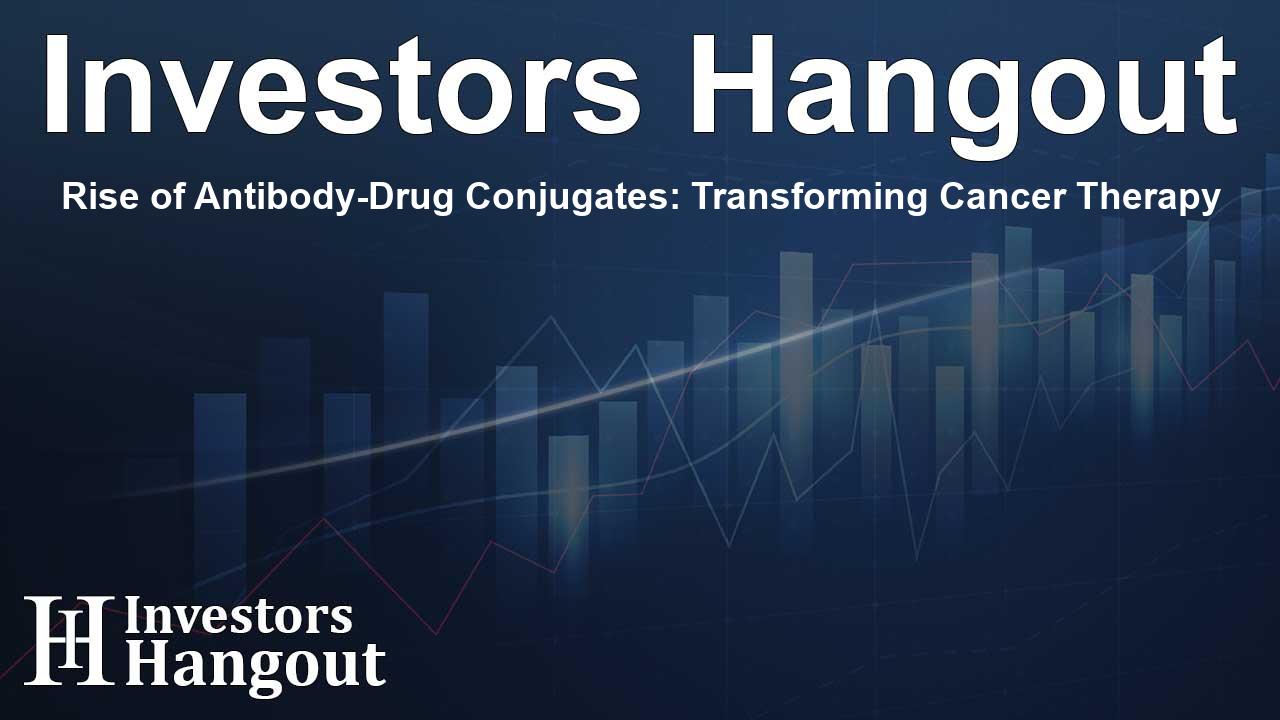Rise of Antibody-Drug Conjugates: Transforming Cancer Therapy

The Expanding Landscape of Antibody-Drug Conjugates
The antibody-drug conjugates (ADCs) market is witnessing transformative growth fueled by innovative therapies and ongoing research. These advanced treatments uniquely combine the precision of monoclonal antibodies with potent chemotherapy agents, targeting cancer cells while minimizing damage to healthy tissues. As this class of therapies gains traction in oncology, it holds the promise of revolutionizing cancer management across various patient populations.
Key Drivers of ADC Market Growth
Recent advancements in targeted therapies are propelling the antibody-drug conjugates market forward with significant momentum. With a reported market expansion anticipated throughout the forecast years, experts predict considerable investments in research and development to enhance the efficacy and safety profiles of ADCs. These developments stand at the intersection of traditional chemotherapy and innovative treatment strategies, positioning ADCs as a favorable option for patients facing treatment-resistant cancers.
Rising Popularity of ADCs
ADCs are becoming increasingly recognized for their clinical effectiveness in various cancer types, including breast cancer, lymphoma, and non-small cell lung cancer (NSCLC). Ongoing studies and trials are uncovering new potential uses for these drugs, providing hope to patients whose traditional treatment options might be limited.
Continued Research and Clinical Trials
The ongoing commitment to research in the ADC field has led to noteworthy drug approvals and pipeline candidates. For instance, key players such as AbbVie and Daiichi Sankyo are leading the charge in ADC innovation, aiming to create therapies that effectively tackle hard-to-treat cancers. Their combined efforts could redefine the treatment landscape and provide much-needed therapeutic options for patients.
Current ADC Approvals and Developments
Several ADCs have already received FDA approvals, demonstrating their effectiveness in clinical settings. Drugs like KADCYLA and ADCETRIS have paved the way for new treatment protocols, offering alternative solutions for patients who have had limited success with conventional therapies. Additionally, the FDA's recent approvals signify a robust regulatory framework supportive of ADC technology, encouraging further research and innovation.
Strategic Collaborations in ADC Development
Partnerships between biotech firms and major pharmaceutical companies are vital to advancing ADC research. These collaborations are designed to expedite the drug development pipeline while mitigating the high costs associated with bringing new therapies to market. With shared resources and expertise, these partnerships are crucial to overcoming traditional barriers within the industry.
Challenges Faced by the ADC Market
Despite the promising nature of ADCs, challenges remain. The high production costs, manufacturing complexities, and potential patient resistance pose significant hurdles. Additionally, optimizing patient selection criteria is critical to improving treatment outcomes, as not every patient may respond favorably to ADC therapies.
The Future of ADCs and Their Role in Oncology
The outlook for antibody-drug conjugates is bright, with expectations of continued growth and expansion in applications. As companies invest in new drug candidates, the ADC landscape will likely evolve, introducing innovative solutions that harness targeted therapies to optimize patient care. The combination of targeted delivery, heightened effectiveness, and reduced side effects will support the ongoing evolution of cancer treatment methodologies.
Emerging Drugs in the ADC Pipeline
Emerging ADC candidates, such as telisotuzumab vedotin and patritumab deruxtecan, are currently at various stages in the clinical pipeline. These novel therapies have demonstrated promising results and could soon join the ranks of FDA-approved drugs, thereby enhancing treatment options for cancer patients worldwide.
Frequently Asked Questions
1. What are antibody-drug conjugates?
Antibody-drug conjugates (ADCs) are a class of targeted cancer therapies that combine antibodies with potent cytotoxic drugs to precisely target and destroy cancer cells.
2. How do ADCs improve cancer treatment outcomes?
ADCs enhance treatment outcomes by delivering chemotherapy directly to cancer cells, minimizing damage to healthy cells and reducing side effects compared to traditional chemotherapy.
3. What challenges does the ADC market face?
Challenges include high production costs, difficulties in manufacturing, potential drug resistance in patients, and the need for better patient selection criteria.
4. Are there any recent approvals for ADCs?
Yes, several ADCs have received FDA approvals recently, expanding the treatment options available for patients with specific cancer types.
5. Who are the leading companies in the ADC market?
Key players in the ADC market include AbbVie, Daiichi Sankyo, Merck, Pfizer, and AstraZeneca, among others, all actively involved in developing new ADC therapies.
About The Author
Contact Henry Turner privately here. Or send an email with ATTN: Henry Turner as the subject to contact@investorshangout.com.
About Investors Hangout
Investors Hangout is a leading online stock forum for financial discussion and learning, offering a wide range of free tools and resources. It draws in traders of all levels, who exchange market knowledge, investigate trading tactics, and keep an eye on industry developments in real time. Featuring financial articles, stock message boards, quotes, charts, company profiles, and live news updates. Through cooperative learning and a wealth of informational resources, it helps users from novices creating their first portfolios to experts honing their techniques. Join Investors Hangout today: https://investorshangout.com/
The content of this article is based on factual, publicly available information and does not represent legal, financial, or investment advice. Investors Hangout does not offer financial advice, and the author is not a licensed financial advisor. Consult a qualified advisor before making any financial or investment decisions based on this article. This article should not be considered advice to purchase, sell, or hold any securities or other investments. If any of the material provided here is inaccurate, please contact us for corrections.
